Happy Wednesday! When we woke up this morning, there were zero presidential debates on the calendar. As we go to press, we’ve got two on the books. Things are moving fast!
Up to Speed
- Former President Donald Trump and President Joe Biden will participate in a debate on CNN on June 27, the network announced Wednesday, and both candidates also accepted an invitation to an ABC debate on September 10. The news came after the Biden campaign proposed debate terms, declining to participate in the Commission on Presidential Debates’s scheduled contest. Biden campaign chair Jennifer O’Malley Dillon suggested scheduling two debates along with a vice presidential debate in July after the Republican National Convention officially nominates Trump and his to-be-announced running mate. Biden’s campaign also asked that the candidates square off in a studio with no live audience, where organizers can cut off a participant’s microphone after his speaking time runs out. The June CNN debate will have no audience, but neither that network nor ABC had announced further details. Trump’s campaign advisers also said they wanted additional debates in July and August.
- Several prominent Republicans, including potential vice presidential picks for Trump, traveled Monday and Tuesday to a New York City courthouse to support the former president during his hush money trial. Ohio Sen. J.D. Vance, North Dakota Gov. Doug Burgum, Florida Rep. Byron Donalds, and former presidential candidate Vivek Ramaswamy were in Manhattan to support the presumptive GOP nominee. House Speaker Mike Johnson also made the trip Tuesday with Florida Sen. Rick Scott showing up at the courthouse last week. In comments to the press, many echoed complaints about the trial that Trump is prohibited from voicing himself because of a gag order imposed by the judge.
- After Trump’s trial proceedings wrapped for the day on Tuesday, several wealthy Republican donors were scheduled to hold a fundraiser with the former president in Manhattan, with tickets costing up to $844,600, according to reports from earlier this month. Cantor Fitzgerald Chairman Howard Lutnick was the principal host, and New York Jets co-owner Woody Johnson—who served as Trump’s ambassador to the United Kingdom—joined, along with John Paulson, a potential pick for Treasury secretary. The fundraiser comes as Trump tries to make up ground in his money battle with Biden and Democrats.
- The Trump campaign has also enlisted Florida Gov. Ron DeSantis to fundraise for the former president, the Associated Press reported Monday. DeSantis is now making calls to potential donors as his team schedules events in Florida and Texas. The news comes after the Trump campaign had a minor spat with him in March following the governor saying he did not anticipate he would need to campaign for the presumptive GOP nominee in Florida. “Ron really shouldn’t flatter himself by assuming we’d want him on the campaign trail. We’re actually trying to win,” Trump spokesman Steven Cheung said at the time.
- But there is one prominent Republican donor who has not yet thrown his money behind Trump. Citadel CEO Ken Griffin, who donated to former U.N. Ambassador Nikki Haley in the GOP primary, said at the Qatar Economic Forum Tuesday he would wait to see whom the former president would pick as his running mate before donating to him. Griffin, who has thus far in the 2024 cycle used his wealth to support Republicans in House and Senate races, did not say whom he would like to see as the running mate.
- West Virginia Gov. Jim Justice won his state’s Republican primary for Senate over Rep. Alex Mooney Tuesday. It sets up a contest with Democrat Glenn Elliott—the mayor of Wheeling, West Virginia—in the race to replace retiring Sen. Joe Manchin. Justice is favored to win in November, offering the GOP a crucial pickup opportunity in its bid to recapture the Senate majority. In another closely watched West Virginia race, Republicans nominated state Attorney General Patrick Morrisey for governor over former state Rep. Moore Capito. Capito, the son of Sen. Shelley Moore Capito, was endorsed by Justice through his pet bulldog, Babydog. Morrisey will square off against the Democratic mayor of Huntington, Steve Williams.
Donald Trump Readies GOP Platform Refresh
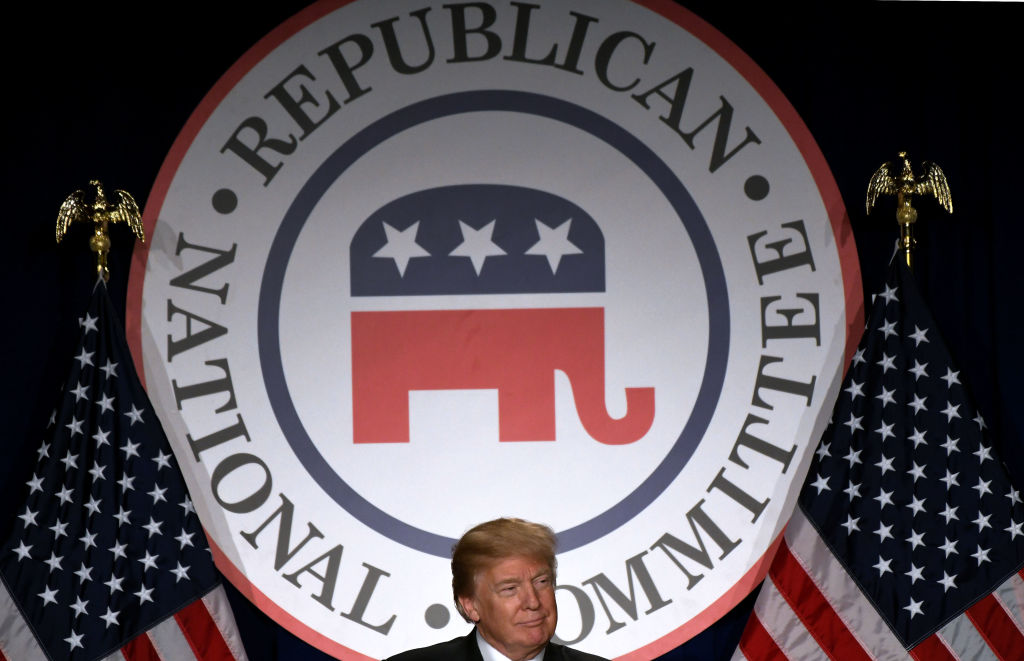
Donald Trump is preparing to oversee a formal update to the Republican Party’s platform prior to accepting the GOP presidential nomination in July. To control both this process and the Milwaukee convention, the former president’s campaign is removing Trump critics on the Republican National Committee from decision-making positions, Dispatch Politics has learned.
The RNC’s summer business meeting is scheduled for Milwaukee during the week before the party’s July 15-18 presidential nominating convention. According to an agenda of the gathering we’ve obtained, the Platform Committee that debates and crafts updates to the document will convene for an orientation on Sunday, July 7, then hold hearings on Monday and Tuesday. That would be a change from 2020, when the RNC rubber-stamped the platform approved four years earlier.
The Trump campaign is wielding power over the new platform—and this summer’s convention—by jettisoning from the Platform and Rules committees elected RNC members who have been even mildly critical of the presumptive Republican nominee. (The Rules Committee governs convention proceedings.) John Hammond, Rules Committee co-chairman who recently announced he would not run for reelection as the RNC’s Indiana committeeman, is being forced out; so is Henry Barbour, RNC committeeman from Mississippi and veteran Rules Committee member.
Hammond has been an outspoken Trump critic for years. Barbour has been a Trump supporter. But in February, he proposed two RNC resolutions opposed by the former president’s team and ultimately quashed. The first would have prohibited the RNC from covering the cost of Trump’s legal bills; the second would have blocked the party from treating the former president as the party’s presumptive presidential nominee until he won the required 1,215 convention delegates, which he did the following month.
“The Trump campaign is heavily influencing state parties on who they put on the Platform and Rules committees at the convention. Many people are being vetoed by the campaign,” a knowledgeable Republican insider told us, echoing multiple GOP sources we queried for this story and who, like everyone else, requested anonymity to speak candidly.
When the RNC Rules Committee gathers in Milwaukee, panel members will be approving regulations for the next Republican convention in 2028, in Houston. But the Rules Committee is authorized to alter the proceedings for this year’s gathering, the one that will nominate Trump for the third consecutive general election. And the former president, as he did previously and as did GOP nominees before him (including Mitt Romney in 2012), is moving to exercise control over the panel’s work product.
The RNC responded to a request for comment but had not provided a statement as of press time Wednesday afternoon.
Meanwhile, for the first time since 2016, the RNC Platform Committee is set to revise the roughly 60-page document detailing the policy and policy principles, and legislative agenda, of the Republican Party. The GOP skipped this work four years ago, citing a coronavirus pandemic that forced the party to cancel the in-person convention it planned to hold in Charlotte and shift to a virtual gathering staged largely in Washington, D.C.
Here, too, the Trump campaign is weeding out critics and other RNC members deemed problematic to Trump’s agenda. Potential complications await. To avoid a spectacle that undermines Trump’s campaign, the former president’s team is looking for pragmatists to serve on the Platform Committee. “That reflects President Trump’s real struggle—to get people focused on winning rather than creating more issues,” an RNC member told us.
But some fireworks are inevitable, particularly on abortion. “There’s going to be a little dust-up in Platform over that,” this individual said.
The Platform Committee could see battles between Republican activists who want to include support for a federal abortion ban in the updated document, and Trump, who seems to have settled on the position that states should decide for themselves. Eight years ago, the GOP platform predictably included consensus language opposing abortion and calling for various judicial and legislative remedies limiting the ability of women to terminate pregnancies. But the overturning of Roe v. Wade in 2022 blew up Republican unity on this issue among those who want a federal ban on abortion and those who want to leave the matter to the states.
A similar fight over same-sex marriage may be brewing. In 2020, the GOP platform also included language opposing same-sex marriage that was, if not consensus, certainly non-controversial inside the party. But societal attitudes on this issue have changed remarkably. In 2022, Congress passed legislation that codified federal recognition of same-sex marriage with substantial Republican support in the House and Senate, bolstering protections the Supreme Court’s 2015 decision in Obergefell v. Hodges decision created. Arguments between those supportive of same-sex marriage and those whose opposition continues seem poised to occur.
“There’s certainly going to be a platform fight on a couple of issues—especially the same-sex marriage plank,” a second RNC member told us. “There is pressure on the Trump campaign to do away with the plank.”
Money for Nothing in Maryland
Angela Alsobrooks defeated Rep. David Trone to win the Maryland Senate Democratic primary Tuesday night, setting up a general election contest between the Prince George’s County executive and the immensely popular Republican nominee, former Gov. Larry Hogan.
The contest pitted Alsobrooks’ deep connections within Maryland Democratic politics against Trone’s massive personal wealth, but the result was not as close as many predicted: Alsobrooks won 54 percent of the primary vote to Trone’s 42 percent, as of Wednesday morning.
“The fight ahead will not be easy,” Alsobrooks told supporters Tuesday night. “A lot of people look at our state and say, ‘Oh, it’s Maryland—it’s a blue state, we can worry about another race someplace else.’ Yes, Maryland has been a blue state, but it will only stay a blue state if we put in the work.”
As Dispatch Politics reported last week, Alsobrooks has a long history in Maryland politics, leading to a number of prominent Democrats there endorsing her bid to replace retiring Sen. Ben Cardin. Furthermore, she and her surrogates made the explicit case for Alsobrooks by pointing out she could be Maryland’s first black senator and one of the few black women to serve in the U.S. Senate.
On the other side, the personal wealth Trone earned from co-founding alcohol retailer Total Wine & More did not deliver. Having previously set a record in 2016 for the most money ever spent (more than $12 million) by a self-funded candidate on a House race in which he did not advance past the primary, Trone blew about $60 million of his own money in just this year’s Senate primary. In his concession speech Tuesday, he encouraged Democrats to rally behind Alsobrooks.
“We must continue to move forward,” Trone said. “We’ve got to move forward as a party. I called my opponent. We had a chat. I conceded, wished her best of luck, offered our support. And I need all of you to come together to support the Democratic Party so we can hold this U.S. Senate.”
Hogan, who won the Republican primary overwhelmingly on Tuesday, offered words of congratulations to Alsobrooks upon her victory.
“I want to congratulate County Executive Alsobrooks on her nomination,” he posted on X Tuesday night. “I know Angela well, and I value our respectful relationship. I look forward to a real debate on what this campaign is about: who can actually help fix the mess in Washington.” He added that Marylanders have a choice between “more of the dysfunctional partisan status quo or real independent and bipartisan leadership.”
The most recent poll in the race that included hypothetical November contests saw Alsobrooks narrowly defeating Trone in the primary and beating Hogan by double digits in the general, after earlier polling saw Hogan with a lead over both Democrats. Maryland-based Democratic strategist Len Foxwell told Dispatch Politics the outcome in November will probably look more like the latter polling that saw Hogan losing to Alsobrooks.
“If these two were squaring off in a gubernatorial election, I’d predict an 8-10 point win for Hogan. But this isn’t a gubernatorial race. It’s a Senate race, which is an entirely different campaign that is contested on an entirely different set of issues,” he said. “Marylanders simply are not going to risk handing control of the Senate to the Republicans just because they think Larry Hogan is a good guy. Which, incidentally, he is.”
Notable and Quotable
“We have to know that sometimes people will open the door for you and leave it open. Sometimes they won’t, and then you need to kick that f—ing door down.”
—Vice President Kamala Harris at a summit for an Asian American non-profit, May 13, 2024



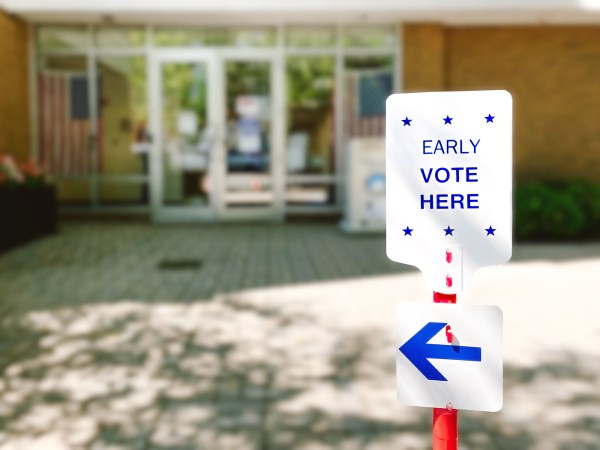
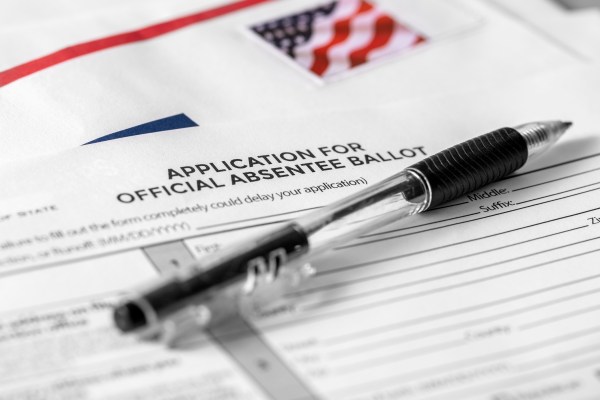
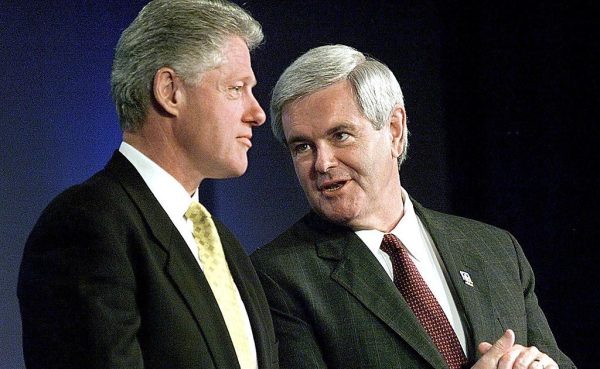


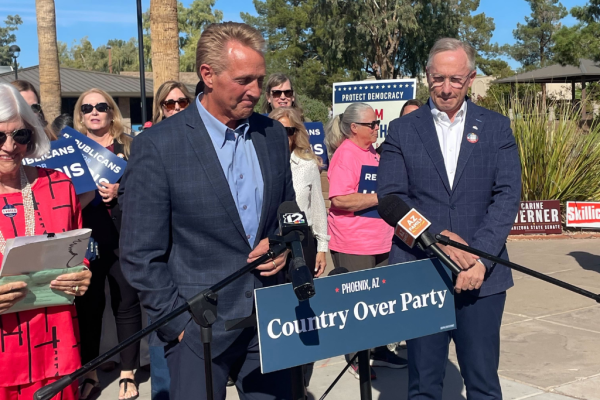

Please note that we at The Dispatch hold ourselves, our work, and our commenters to a higher standard than other places on the internet. We welcome comments that foster genuine debate or discussion—including comments critical of us or our work—but responses that include ad hominem attacks on fellow Dispatch members or are intended to stoke fear and anger may be moderated.
You are currently using a limited time guest pass and do not have access to commenting. Consider subscribing to join the conversation.
With your membership, you only have the ability to comment on The Morning Dispatch articles. Consider upgrading to join the conversation everywhere.